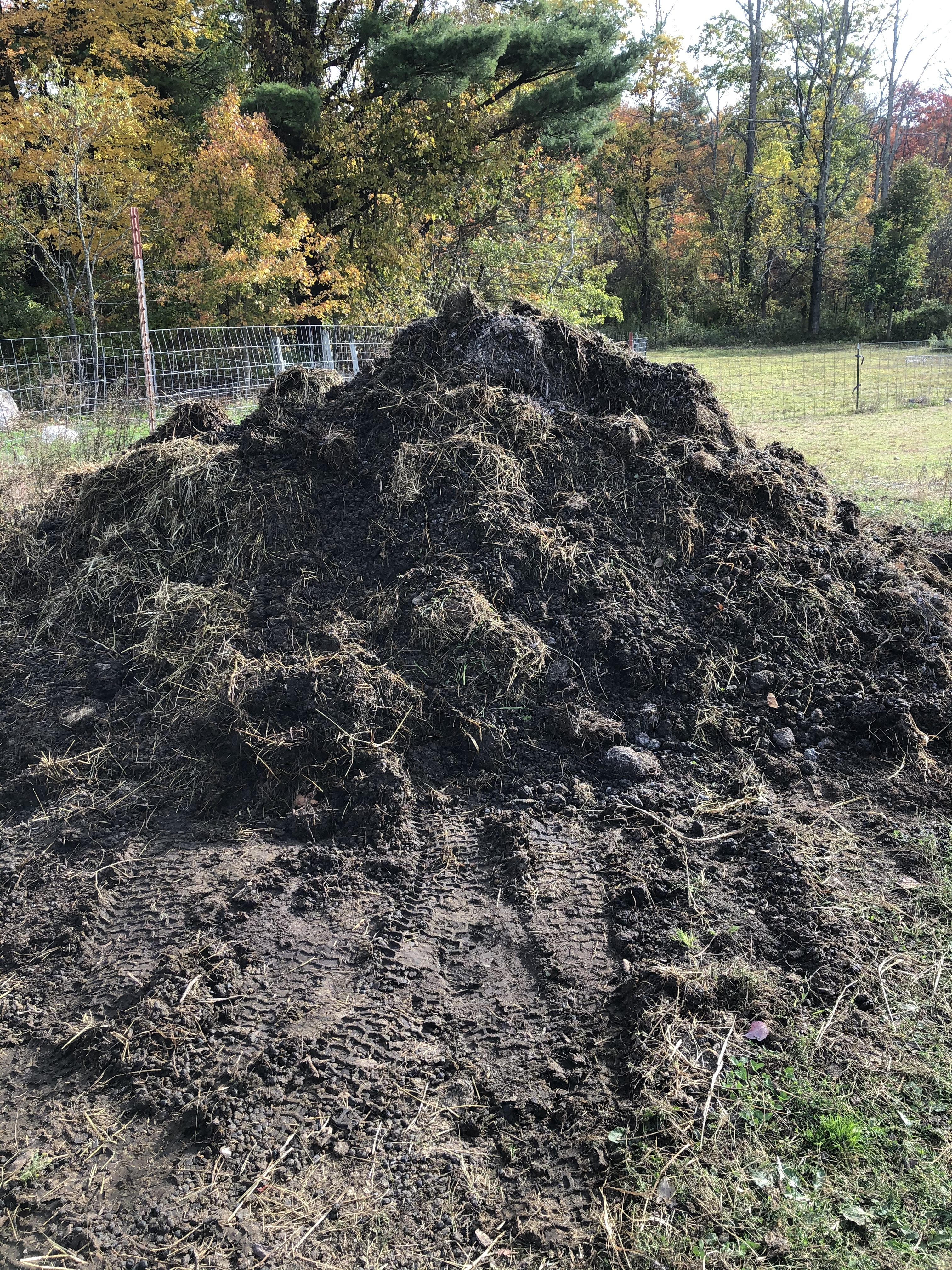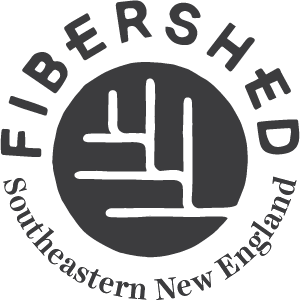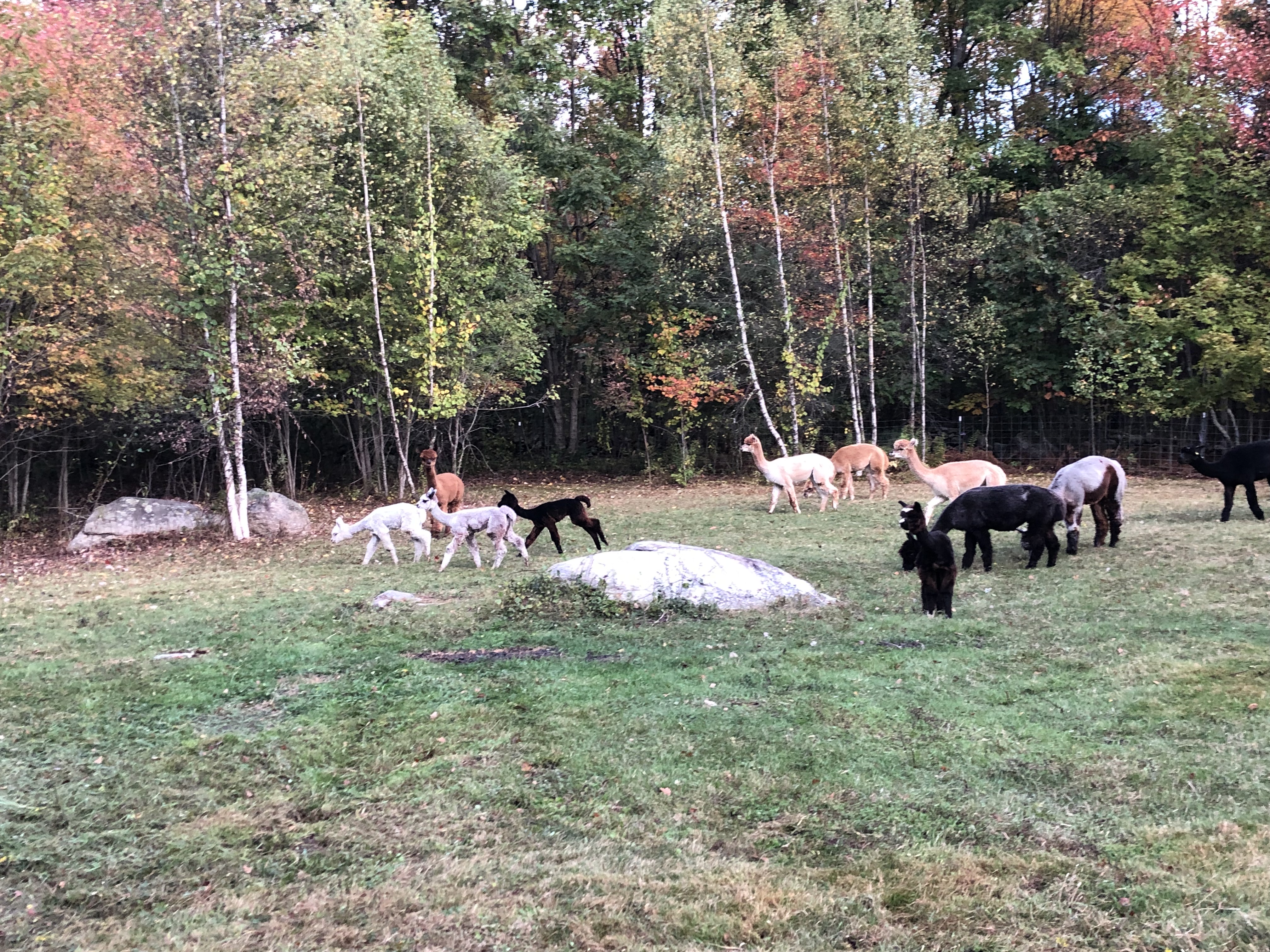
As part of our carbon farming cohort, Plain View Alpaca Farm owners Keith and Debbie Tetreault took on practices this spring and summer to better their pasture grazing area for their (“aggressive eating”) 41 alpaca herd. Plain View has been one of 5 farms participating in strengthening the Southeastern New England fiber farming community with regeneratively-managed fiber animal grazing land. By implementing mulching and composting, silvopasture management, as well as fencing and planting a mix of new grasses, the Tetraults have been pretty successful for their first season.
Not to mention ready for the road ahead.
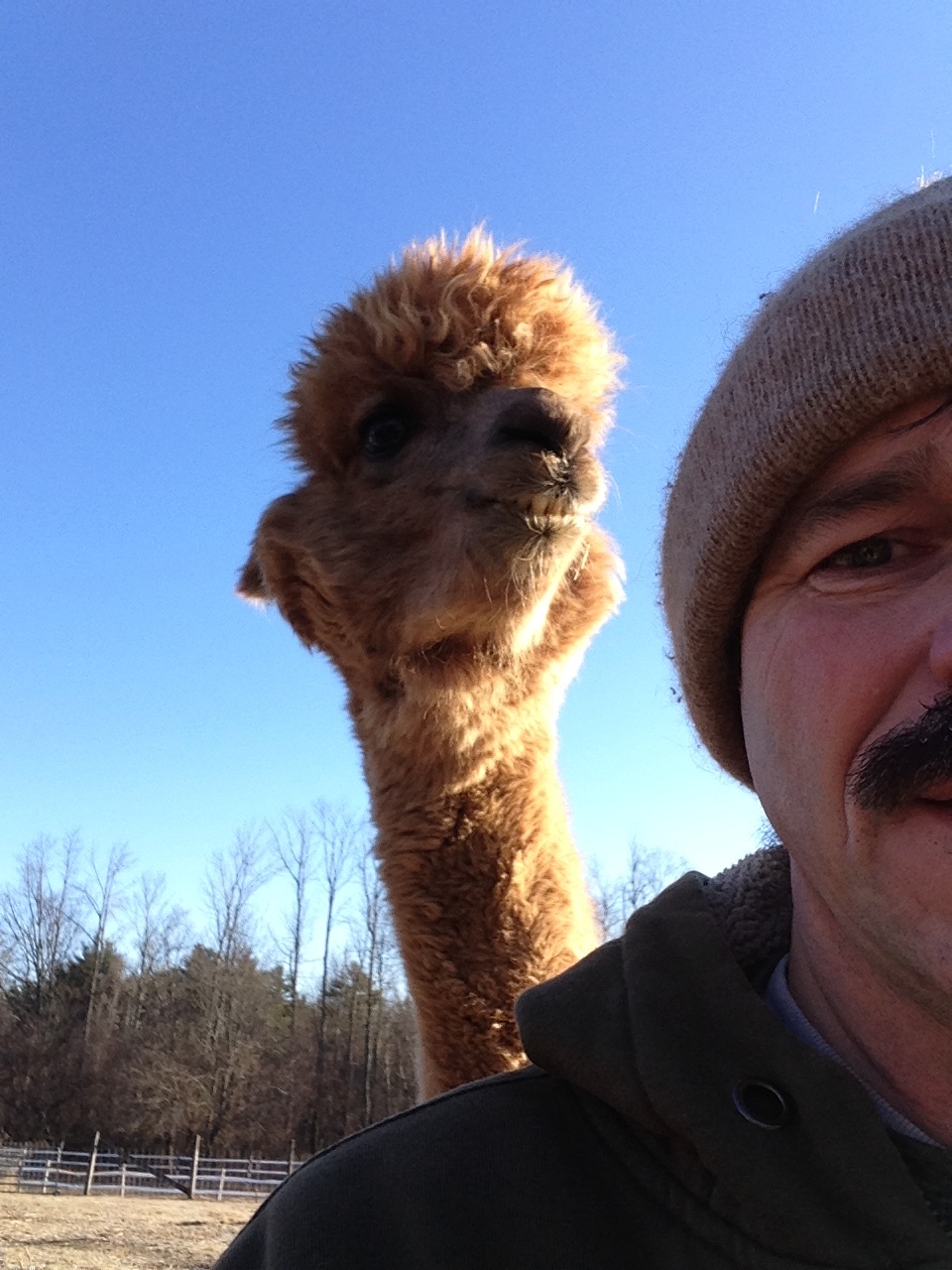
“Being a relatively small farm, seven acres and only about half in pasture, all the easy pasture work has been done. I’m excited to pick up ‘square feet’ of pasture versus acres. This was all pasture at some point in the past, the stone walls say so, but a lot of my space is overgrown, trees, rose and bittersweet are everywhere. The soil under the brush is good though. It just takes time effort and money to reclaim the space,” says Keith.
The Plain View Alpaca Farm owners have been very active members of the cohort, and have run their family-owned and operated alpaca farm located in Hubbardston, Massachusetts for over 9 years.
“Most of what I’m doing is a journey with the goal in the long run to leave this property in better shape than when we got here,” says Keith.
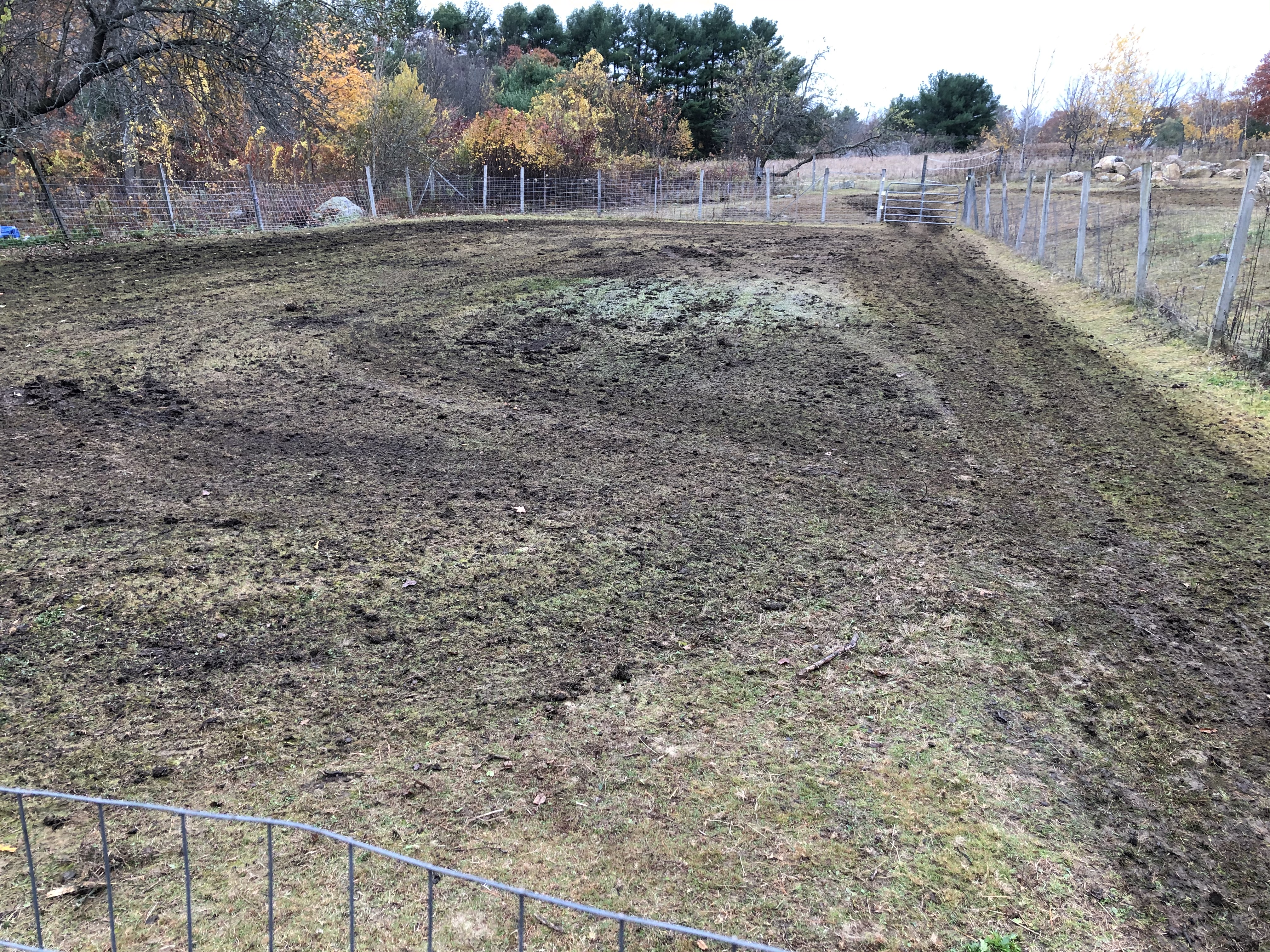
Here’s what Keith and Debbie did this spring and summer 2019:
Boy’s side:
-Made a path from the boys side through the woods to access back pasture.
-Worked on drainage challenges for the boys side. Hopefully redirecting water to dry the pasture out quicker in the spring. Took some larger rocks moved up towards the barn as a base for future manure pad.
-Removed brush for future pasture expansion and put up some fencing in the area
-Started moving fencing for implementing a chute through the center of the field with plans to divide the field into smaller grazing areas
-Spread manure on all of boys’ pasture area earlier this year
-Keeping ½ the boys pasture fenced off since roughly Oct 1 until next spring to rest.
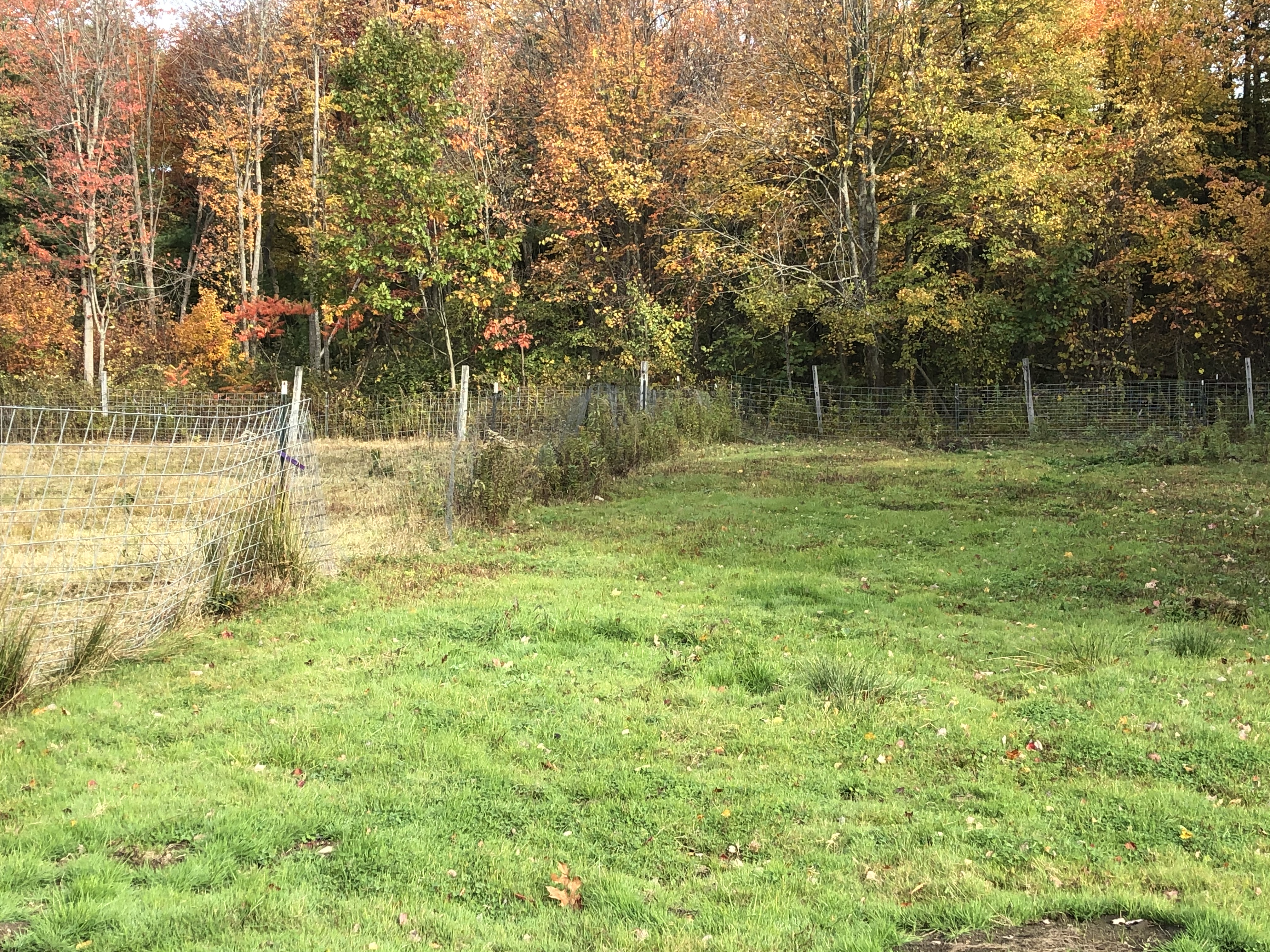
Moms and babies area:
-Closed three small areas closed off to rest until next year and spread manure
-Eventual plan is to reconfigure fencing and access to future manure pad area near the barn
-Expanded some small areas for new grazing, reclaiming from multiflora rose and bittersweet
Girl’s Side:
-Area soil samples were taken from is still being grazed but Keith and Debbie have half of their main pasture closed off til spring. This includes an area reseeded last spring.
-Manure has been spread
-Started removing old cedar posts and moving fencing using cattle panel and T-Posts
-Made a couple raised beds with the old posts. Grew some impressive weeds.
-Spent time trying to clear further back into the property and moving fences further into area. Again lots of rose and bittersweet.
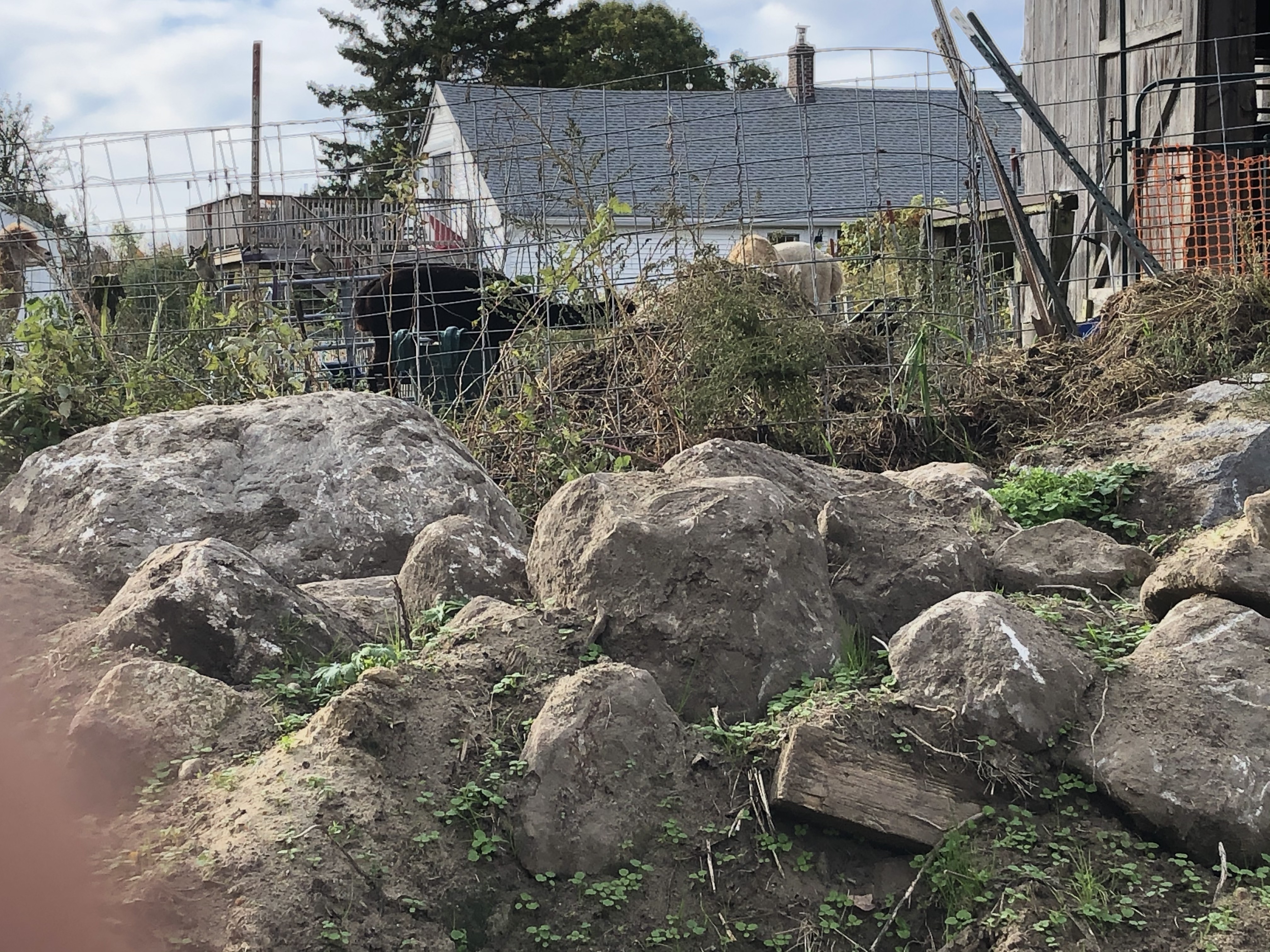
Keith says it’s hard to close the alpacas off from grazing areas especially this time of year when not a lot is growing.
“The tendency is to open up everything so they can get some exercise and maybe nibble some dry grass. Through our cohort meetings, it helped reinforce that closing off the pastures as much as possible will make for better forage in the future,” says Keith, adding that by closing off some of the pasture on each group hopefully it will let that area rest and rejuvenate a bit making for a better pasture next year.
“Ideally in the future, I want to divide the pastures into more smaller areas so that so that I can rotate the groups through and rest each space longer in between grazings. Given a big area the alpacas will eat just the good stuff letting the weeds grow. Smaller areas should get them the way down more of the weeds too.”
To learn more about Plain View Alpaca Farm, catch up with them at an event or visit Keith and Debbie’s farm, go here.
